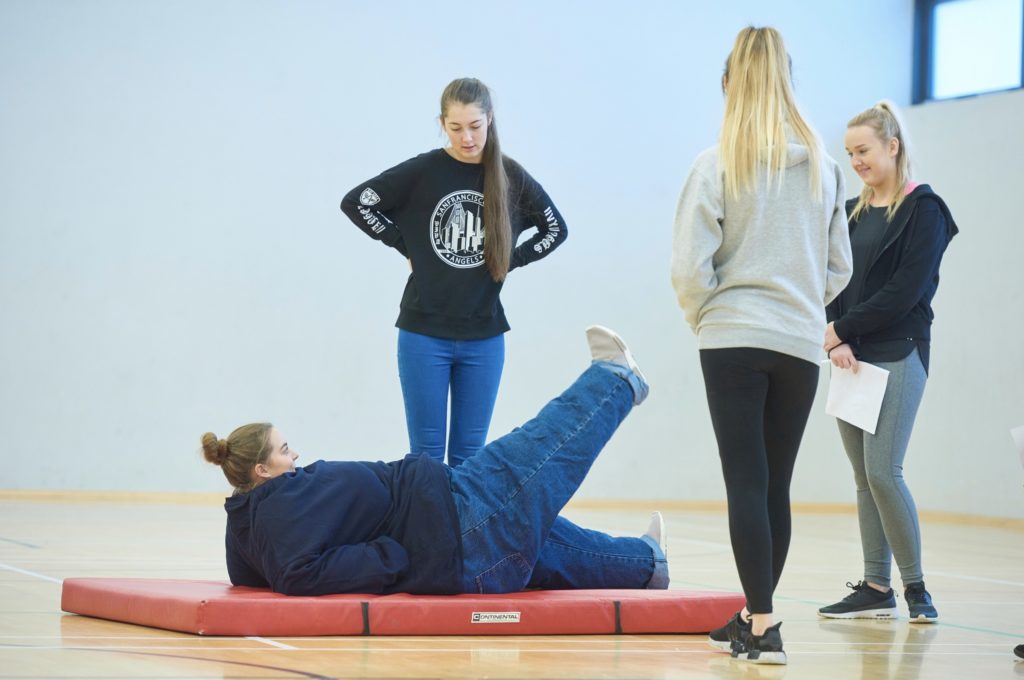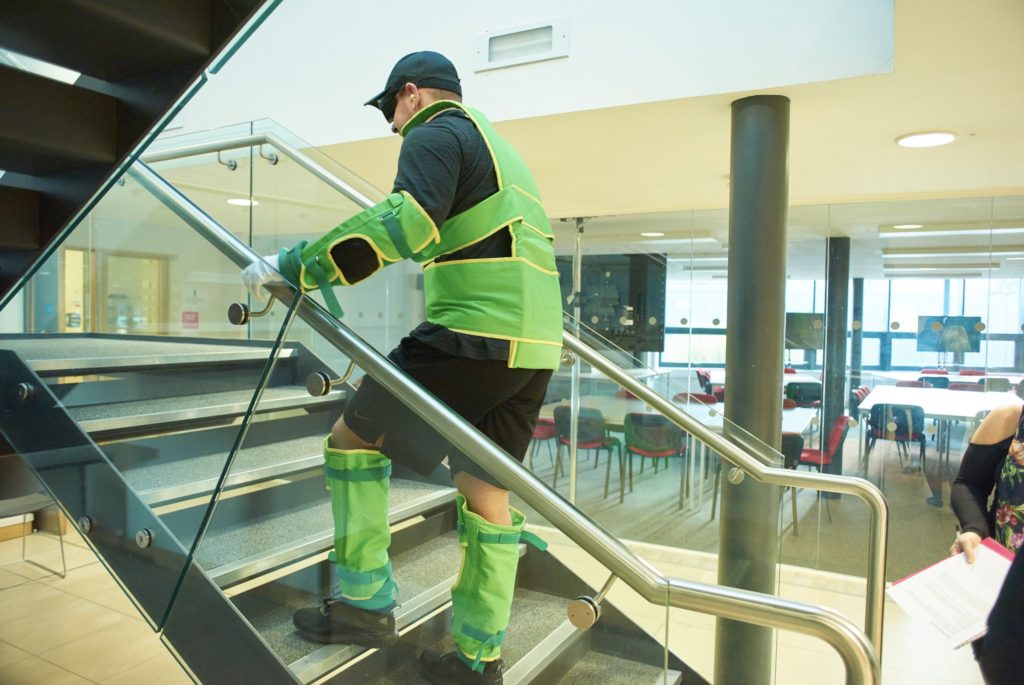Edge Hill University students enrolled on the Exercise, Diet and Health Promotion module are required to produce a leaflet promoting physical activity to a specific population group, to address health inequalities. The leaflet must include population specific recommendations for how to incorporate physical activity into their lifestyle, considering any physical or environmental limitations they may have. As previous cohorts had expressed difficulty with translating physical activity recommendations into useable information for specific at risk populations, module leader Claire Blennerhassett introduced a practical workshop that tasked students to adapt specific activities for populations with mobility and sensory impairments.
During the session, volunteers wear the geriatric and bariatric suits to carry out different exercises and provide feedback on the suitability of the adaptations. Demonstrating their creativity, students have in the past adapted equipment and exercise to make them more manageable for those wearing the suits. Students have also shown compassion towards their peers as they support individuals to complete activities that were challenging due to physical restrictions.
The geriatric suit includes a back brace, elbow and kneepads to restrict the range of movement and weights attached to the wrists and ankles increase the effort of each physical activity. In addition, goggles, earplugs and gloves impair the senses of the student.
‘The worst part was the goggles, I couldn’t tell where the steps where. It was hard to know when I’d got to the bottom step’ said a past student.
Similar to the geriatric suit, the bariatric suit also reduces the students range of movement however this is done by adding extra weight which increases the perception of effort.
Physical activity has the potential to improve the health status and quality of life of an ageing population, and also reduce the rates of obesity locally and globally. Giving students the skills to translate the Department of Health’s physical activity guidelines into useable information for individuals is a valuable employability skill for those pursuing a career in health and social care or health promotion.



